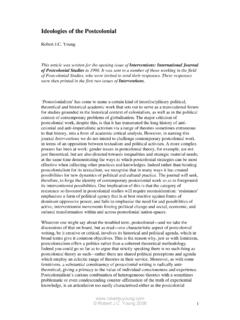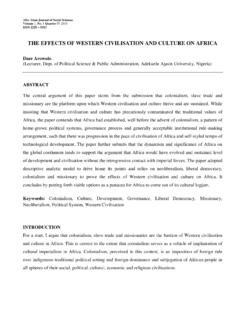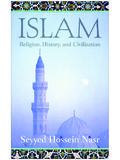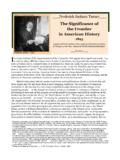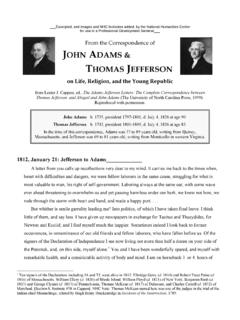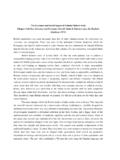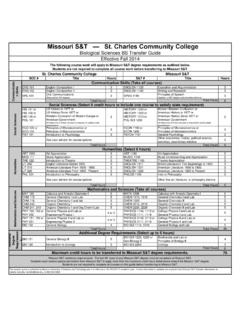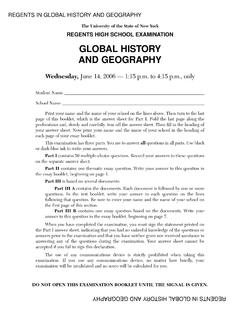Transcription of Foucault on Race and Colonialism
1 Foucault on Race and Colonialism (1995) Robert Young Foucault had a lot to say about power, but he was curiously circumspect about the ways in which it has operated in the arenas of race and Colonialism . His virtual silence on these issues is striking. In fact Foucault s work appears to be so scrupulously eurocentric that you begin to wonder whether there isn t a deliberate strategy involved: consider, after all, the context of the Paris of Sartre, Fanon, Althusser, the traumatic defeat of the French at Dien Bien Phu in 1954, the Algerian War of Independence and the National Liberation Movements of the 1950s and 1960s.
2 Foucault s few explicit writings in these areas are sometimes curious: take his comments on the revolution in Iran, where he discusses the Iranian revolution in terms of what he considers to be its expression of an absolutely collective will which he contrasts to the more mediated forms of European This distinction is constructed according to very European, indeed Orientalist, categories: the fantasy of Iran as subject of a collective will, as pure being, screens the historical relation of the revolution to its colonial adversaries.
3 Yet the lasting paradox is that despite the absence of explicit discussions of Colonialism , Foucault s work has been a central theoretical reference point for postcolonial analysis. It provided the theoretical basis for what has effectively become the founding 2007 Robert JC Young 2 disciplinary text for contemporary postcolonial theory, Edward Said s Orientalism (1978).2 What enabled Orientalism to be so outstandingly successful, and establish a whole new field of academic inquiry?
4 The key factor was undoubtedly the way in which the idea of Orientalism as a discourse allowed the creation of a general theoretical paradigm through which the cultural forms of colonial and imperial ideologies could be analysed. While Marxist accounts had emphasized the primacy of the economic in the development of Colonialism and imperialism, the diversity of economic conditions, the historical and geographical differences between colonies (how to compare, for example, the United States with India?)
5 Meant that there was no general schema through which the particularity of the cultural effects of Colonialism and imperialism could be analysed. Foucault s discourse describes the particular kind of language which specialized knowledge has to conform to in order to be regarded as true (for example, medical discourse, the discourse of theoretical nuclear physics, of computers, literary criticism, ). According to Foucault , discourse always involves a form of violence in the way it imposes its linguistic order on the world: knowledge has to conform to its paradigms in order to be recognized as legitimate.
6 Following Foucault , Said argued that Orientalism was less a body of objective scholarly knowledge than a discursive construction, whose conceptual structure determined the way in which the West understood the East. Though accepted in the West as true, Said s point was that Orientalism was a form of ideological fantasy, with no necessary relation to the actual cultures that it supposedly described and understood: the very Orient was itself an Orientalist fiction. At the same time Orientalism, as Said defines it, was a relationship of power, of cultural domination, the cultural equivalent of the Colonialism which it accompanied.
7 As Foucault puts it, it is in discourse that power and knowledge are joined together .3 2007 Robert JC Young 3 Said s Foucauldian emphasis on the way in which Orientalism developed as a partisan discursive construction has necessarily come to be balanced by the pursuit of what Orientalism excluded. Interestingly enough, it has been Foucault again who has provided the theoretical model for this archaeology of silence . In terms of the social production of the subject, his early work Madness and Civilization (1961) has functioned as a founding study of the way in which European society has determined its forms of exclusion and the differences which limit it.
8 Foucault himself described Madness and Civilization as a history of difference, of the expulsion of alterity: The history of madness would be the history of the Other of that which, for a given culture, is at once interior and foreign, therefore to be excluded (so as to exorcise the interior danger) but by being shut away (in order to reduce its otherness).4 In a similar way, Said s Orientalism constitutes a system of apparent knowledge about the Orient but one in which the Other which makes up that Orient is never allowed, or invited to speak: the Oriental other is rather confined to fantasy.
9 The discursive representation of Orientalism has been balanced by attention to the reality which that representation missed or excluded and has inspired a whole movement dedicated to retrieving the history of the silenced subaltern: both in terms of the objective history of subaltern or dominated, marginalized groups, counter-histories , and in terms of the subjective experience of the effects of Colonialism and domination. Foucault s own formulation of history as a writing of singularity, where the event as event is only constituted through its repetition in thought as a phantasm , was itself clearly designed to facilitate the inscription of histories that had never yet been subjected to such hegemonic 2007 Robert JC Young 4 In the wake of Orientalism s widespread influence, many commentators have criticized Said for employing too determining and univocal a notion of discourse.
10 This is largely the result of his reliance on Foucault s initial account in The Order of Discourse (1971), which stresses its restrictive and homogenizing Later critics such as Homi K. Bhabha have emphasized the rather different description of The History of Sexuality (1976), where Foucault writes: we must conceive discourse as a series of discontinuous segments whose tactical function is neither uniform nor stable. To be more precise, we must not imagine a world of discourse divided between accepted discourse and excluded discourse, or between the dominant discourse and the dominated one; but as a multiplicity of discursive elements that can come into play in various According to Foucault here, the whole attempt to represent other voices that have been silenced and excluded by discourse represents nothing less than a conceptual error.
